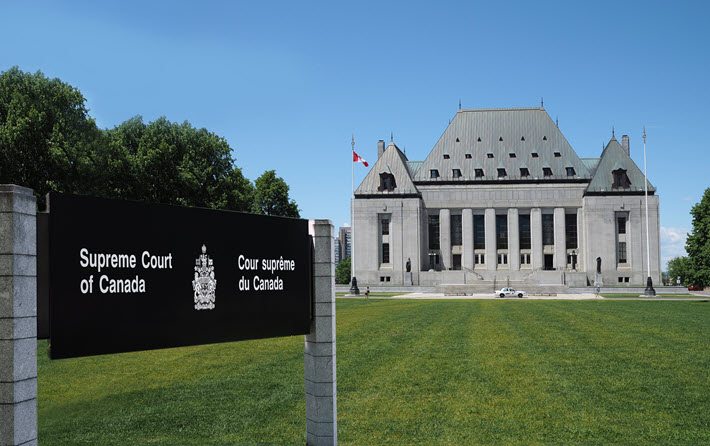R. v. Ahmad 2020 SCC 11

https://decisions.scc-csc.ca/scc-csc/scc-csc/en/item/18383/index.do
What is a defence of entrapment?
The Supreme Court of Canada, in a case called R. v. Mack https://scc-csc.lexum.com/scc-csc/scc-csc/en/item/391/index.do settled the law of entrapment in Canada. It set out two alternative branches, either of which was deemed sufficient to ground an accused’s claim of entrapment and justify a stay of proceedings:
There is, therefore, entrapment when: (a) the authorities provide an opportunity to persons to commit an offence without reasonable suspicion or acting mala fides . . . or, (b) having a reasonable suspicion or acting in the course of a bona fide inquiry, they go beyond providing an opportunity and induce the commission of an offence. [p. 959]
Defence of Entrapment explained:
At the crux of the Ahmad case is issue of entrapment – can the police tempt people or trick people into committing a crime. This issue is traditionally raised in cases related to drug trafficking or child luring when the police officer is undercover and acting as a civilian. Police officers can tempt a person into committing a crime only when they have “reasonable suspicion” to suspect that a certain crime was already happening in a particular place or that a particular person is engaged in ongoing criminal activity. If police do not have a reasonable suspicion and they tempt a person to commit a crime anyway, it is called “entrapment.” Entrapment is very serious and if successfully argued, results in a “stay of proceedings”, which means that the prosecution must be stopped, and the person cannot be convicted of the crime.
Whether the police have a reasonable suspicion and what they can do to try to collect evidence towards it, is a question that is fact depended. Similar cases will have a different result depending on the specific actions and words used by the police.
Facts of the case
The Supreme Court of Canada heard 2 cases at the same time. Both considered the same issue but had different facts.
In Mr. Ahmad’s case, the police got a tip that someone named “Romeo” was selling drugs over the phone. The police did not know if the tip was trustworthy. The officer called the phone number and asked if the person went by the name of “Romeo’s”. Ahmad (aka Romeo) asked the officer “what do you need?”. The Supreme Court ruled that this question gave rise to a possibility that Ahmad was involved in drug trafficking and thus their subsequent undercover purchase did not constitute entrapment.
The facts of the Williams case were slightly different. Similarly to the Ahmad case, the police received a tip, called the number provided and had a conversation with the person on the other end. There was nothing in the responses before the officer provided the opportunity to traffic to suggest that the phone number was being used to sell drugs. Since the police had nothing more than a bare tip, they did not have the necessary reasonable suspicion that Mr. Williams was selling drugs and their offer to purchase some drugs, therefore, amounted to entrapment and required a stay of proceedings.
Legal Principles from the case
In cases like Mr. Ahmad’s, before asking a person to commit a crime, the police require a good reason to suspect that the person answering the phone is committing a certain crime or that the phone number is being used for that crime. Having a tip that is not confirmed to be trustworthy does not satisfy the reasonable suspicion standard. If you need help from qualified criminal lawyers, please contact us

Don’t delay – contact an experienced criminal defence lawyer with decades of experience to have the best chance of winning your case.
call us 24/7
Don't Let A Criminal Charge Destroy Your Life
Get 1 Free Hour Consultation!
Register with us to schedule a free consultation


